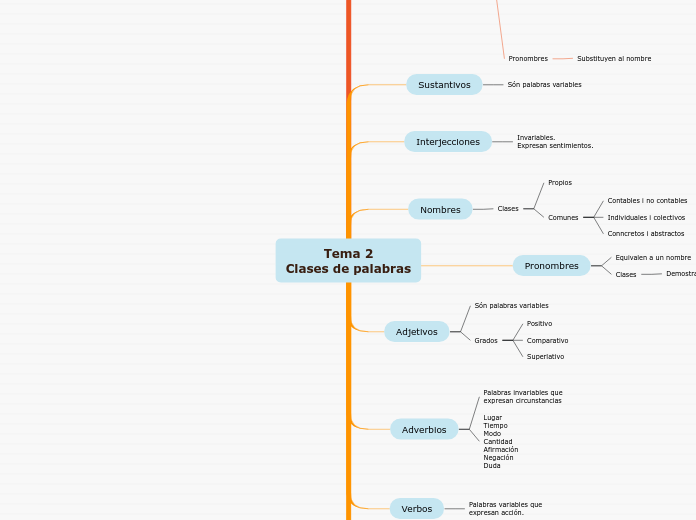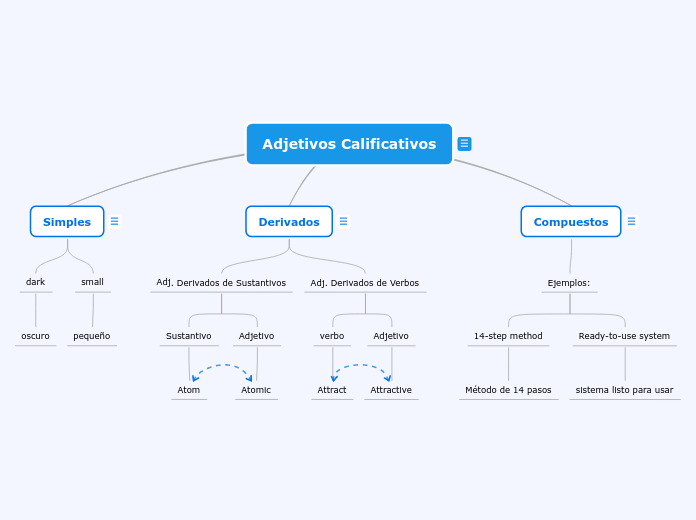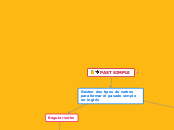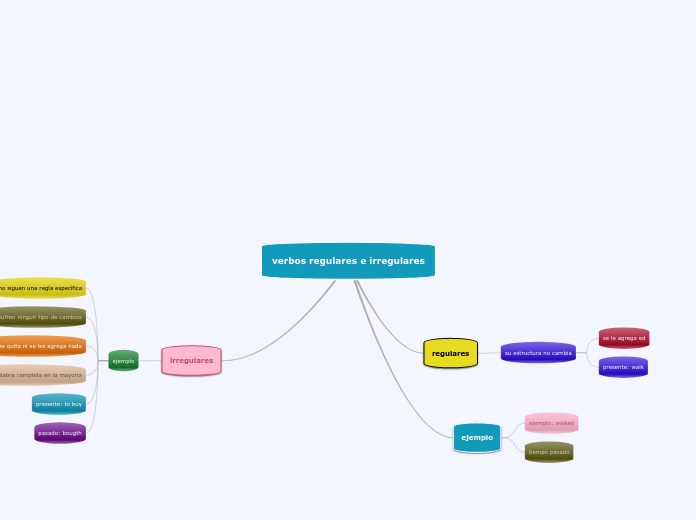Tema 2
Clases de palabras
To name your story, you have to think about the overall message and what you want your audience to understand from the story. Also, make it relevant and easy to remember.
Preposiciones
Palabras invariables.
Indican relaciones
Conjunciones
Palabras invariables.
Relacionan palabras entre sí.
Verbos
Palabras variables que
expresan acción.
Adverbios
Lugar
Tiempo
Modo
Cantidad
Afirmación
Negación
Duda
Palabras invariables que
expresan circunstancias
Adjetivos
Grados
Superlativo
Comparativo
Positivo
Demostrativo
Equivalen a un nombre
Nombres
Comunes
Conncretos i abstractos
Individuales i colectivos
Contables i no contables
Propios
Interjecciones
Invariables.
Expresan sentimientos.
Sustantivos
This is the closure section of the story.
See examples of possible outcomes below:
- all problems have been solved
- it's clear how each one of your characters ends up
- your main character is transformed by the challenge
Són palabras variables
Try answering these questions to come up with a closure:
- Have all the problems been solved?
- Is there a clear picture of what happens with each character in the story?
- Has the challenge transformed your main character?
- How do the characters feel in the end?
The middle of the story is where you add layers of complications that will lead to the end. Reveal more about the character's journey. Did their personality go through changes? How did they overcome the challenges? And as you build up the story’s central conflict, make it more personal to that character. Also, from the middle act, you have to lead into the final act.
Pronombres
Your character(s) need(s) motivation in order to solve the challenge(s).
Substituyen al nombre
Secondary characters might also have motives that lead them to cross paths with the main character or which might trigger them to help the main character.
Determinantes
Each story has a main character and that character usually needs to solve a problem or challenge. The character's challenge is the one that creates tension throughout the story.
Clases
Artículos
Demostrativos
Posesivos
Cuantificadores
Relativos
Interrogantes
Exclamativos
Indefinidos
Indeterminados:
un, una, unos, unas.
Determinados:
el, la, los, las.
Palabras variables
Van delante del nombre
In most stories, there are 3 challenges. The number 3 is a mystical number symbolizing completeness. Try to come up with interesting challenges with which your character needs to struggle.
See a few examples below:
- turns into a werewolf at night
- is sent back in time
Palabras
In the beginning of the story (or the exposition), you will need to introduce the setting and characters. You might also want to introduce the main conflict. This part of the story is important because it gives the reader necessary background information and maybe even a first insight into a character’s personality.
Invariables
The setting (time & place) of a story can change throughout the plot.
Lo contrario
Sensory details include sight, sound, touch, smell, and taste. These details are important because they create depth in your setting.
See a few examples below:
- the smell of fresh bread
- the scent of freshly cut grass
- rain falling onto the windshield etc.
Variables
Characters are essential to a good story. Usually, the protagonist(s) is/are the most affected by the plot. Introduce a character by focusing on their actions, interests, and occupation, as the physical appearance doesn't make a difference in most cases.
Masculino
Femenino
Singular
Plural
Verbos.
Type in the name of your character.










